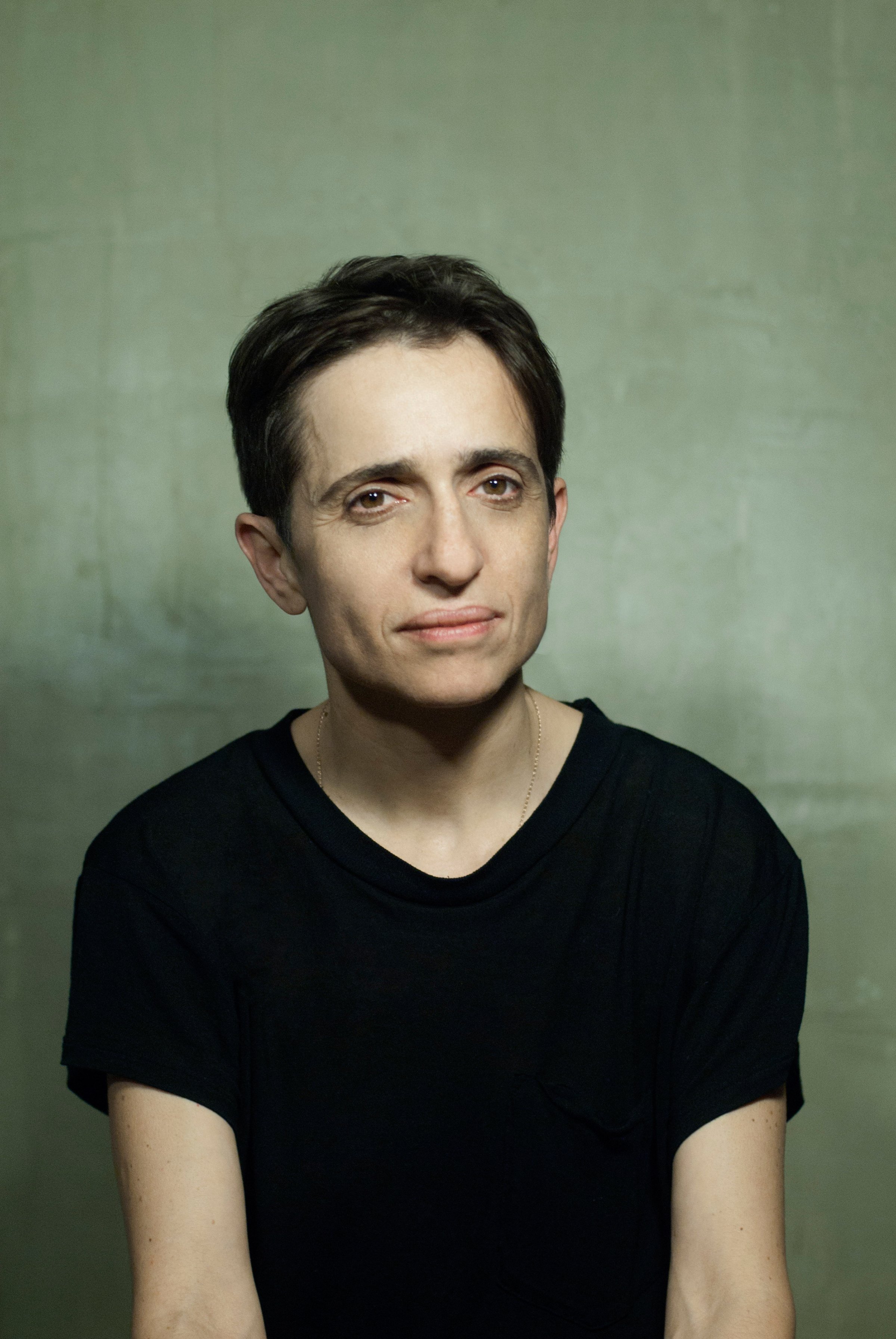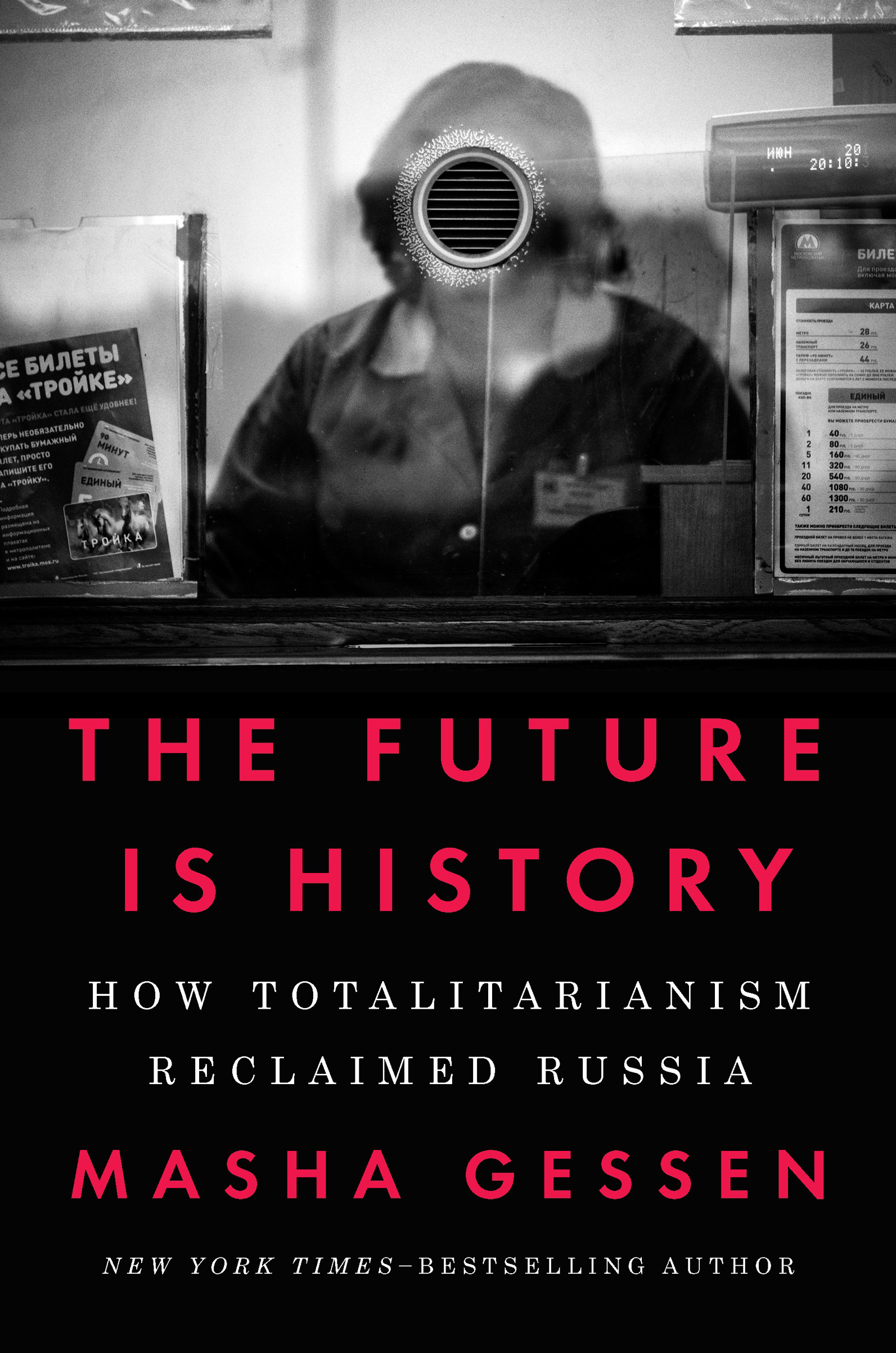
Following her 2012 biography of Russian President Vladimir Putin, the author and journalist Masha Gessen turns her focus to the social traumas and disappointed hopes of her native country, as seen through the perspectives of the seven characters in her latest non-fiction book, The Future is History: How Totalitarianism Reclaimed Russia, which was published on Oct. 3.
Three of the book’s characters – a psychoanalyst, a sociologist and a nationalist philosopher – possess what Gessen calls the “tools of knowing” that are required to analyze Russia’s transition from Soviet communism to Putin’s brand of state capitalism. The other four are young people, born during the final years of the Soviet empire, who feel the lingering effects of its dissolution on their own skin: one through the murder of her father, another through her struggle with Russia’s system of political repression.
Gessen spoke to TIME on Sept. 26 about the roots and faults of the system Putin built – and its similarities to President Donald Trump’s America. Below is a transcript of the conversation, shortened and edited for clarity.
TIME: One of the Russian phrases at the center of your book is budushchevo net – “There is no future.” What does that mean to you and to the characters in the book?

GESSEN: I started out trying to tell a story of Russia’s trauma. And one of the hallmarks of trauma is the loss of the ability to plan for the future. It’s really about the loss of control. This sense of having no control over your own life is very important to creating a totalitarian subject. People express that with the phrase budushchevo net.
The word “totalitarian” is usually reserved for the most repressive regimes, like North Korea or Hitler’s Germany. Why do you believe Russia has reached that level of state control?
I’m not using that word in relation to Putin. The regime that exists in Russia is not a totalitarian regime. Putin has created the regime of a mafia state. But because he created this regime on the ruins of a totalitarian society, totalitarian habits have kicked in. It’s a bizarre situation, where the regime sends out signals that aren’t about establishing totalitarian control. The regime just wants to plunder and stay in power. But society, which has been conditioned by so many years of totalitarianism, responds by creating totalitarian mechanisms, [like] when people start raiding bookstores in their own neighborhoods to make sure there is de facto censorship.
So Russian totalitarianism comes from the grassroots, not from the top down?
What we have is neither of those things. The Kremlin just sends out signals that are actually not that different from Trump’s dog whistling to his supporters, to the people who share his idea of this imaginary past. Trump did this after the violence in Charlottesville and after the athletes began kneeling during the national anthem. He sends out these signals to his supporters. And in America the response comes from both sides of the debate, often with people showing solidarity with each other, like the athletes taking a knee.
But Russian society responds to such signals in a very different way. In Russia the dog whistle does not elicit cries of protest. Because of its history with totalitarianism, Russian society responds with mobilization.
What are they mobilizing towards?
Scholars of totalitarianism talk about the importance of this constant movement, this forever war, this need to do battle on behalf of something that needs protection. In Russia, this something has been postulated as faith and traditional values.
At least one of the characters in your book also mobilized against Putin during the protests in 2011 and 2012. How important is this form of political awakening in Russia today?
I’m pessimistic about such political awakenings. For most people these awakenings are very short-lived. As the protests died down in 2012, there was no contradiction for them in returning to their regular lives and finding nothing about the regime objectionable.
What about this year’s wave of anti-Putin protests? They were widely attended by Russian teenagers who were born and raised during Putin’s 18 years in power.
Yes, and there was an incredible intellectual and emotional focus on the teenagers who were protesting. But that’s indicative to me of a really sad tendency. After the Soviet Union collapsed, people thought the last Soviet generation was going to be the great hope for democracy. When that failed, their hopes shifted to the first post-Soviet generation, and then the second one. And now the people who were the young vanguard of the protests just five years ago, they have already written themselves off, and they are looking to teenagers to save the country. And what if they don’t?
But Russian teenagers did not experience the traumas of the Soviet collapse. So aren’t they more immune to these traumas, these totalitarian tendencies you describe?
That’s a philosophical question. There’s the hypothesis that things just keep happening to Russians, things that keep turning them into the same kind of subjects, as opposed to citizens. The more credible hypothesis, I think, is that there is a kind of trauma, a social trauma that is passed on from generation to generation. And that doesn’t go away just because we all decided that the Soviet regime is no more.
After the U.S. elections, Putin has often been depicted in the West as some all-power figure. Do you think the West overestimates him?
It depends. I think his power in influencing the U.S. elections is overestimated, because there is an overwhelming desire to lay blame for Trump somewhere outside the United States. But otherwise I don’t think it’s overestimated. … He does wield unilateral power in his country. Is there a system of checks and balances that would limit his power? There isn’t.
But does he have the kind of absolute control usually associated with totalitarian regimes?
Do people in Russia today live as people in the Soviet Union lived under Stalin? Of course not. But does [Putin] have the same political staying power as Stalin did? Does he have the near guarantee of maintaining power and being able to do whatever he wants for the rest of his life? Yes.
Will his authoritarian system survive after he’s gone?
When Stalin died, the Eisenhower Administration was terrified about what would happen. They feared that the hardliners would come to power. Which is incredible to think about. What was their concept of a hardliner if the baseline was Josef Stalin? This suggests that the devil you know has incredible symbolic power in politics. … The idea that hardliners might come to power if Putin disappears is very useful to him. It’s something that every dictator cultivates, this idea that there is someone even scarier.
So what future do you see for Russia after Putin?
I don’t have a lot of hope for Russia when Putin goes, because I think that the kind of damage that has been done to that country hasn’t been understood. We’ve never seen a country that has been this battered. And I don’t know whether there is any way for it to recover. When Putin goes, I think Russia is not going to stay within its current borders. There is going to be some kind of redrawing of the federation. And if there is any hope, then it’s for the countries that are formed in the wake of the Russian Federation that manage to narratively divorce themselves from Russian history.
You’re saying the country will break apart. Doesn’t that play into Putin’s propaganda that without him there is no Russia?
Russia continues to be an empire in a world that has pretty effectively dispensed with empires. So why is the Russian Federation of more than 80 constituent parts, most of which have distinct national identities, some of which have distinct languages and cultures, and all of which now, as a result of being plundered by the Putin regime, have nationalist movements – why should they stay together?
So Putin’s personal hold on power is all that’s holding Russia together?
Since Putin does not think he is going to die, there is not going to be any succession plan in place when he dies. And there is going to be a period of disarray and uncertainty. And that will be a perfect opening for the final break-up of the empire.
That sounds like a terrifying prospect.
I hope we live long enough to see it.
More Must-Reads from TIME
- Why Trump’s Message Worked on Latino Men
- What Trump’s Win Could Mean for Housing
- The 100 Must-Read Books of 2024
- Sleep Doctors Share the 1 Tip That’s Changed Their Lives
- Column: Let’s Bring Back Romance
- What It’s Like to Have Long COVID As a Kid
- FX’s Say Nothing Is the Must-Watch Political Thriller of 2024
- Merle Bombardieri Is Helping People Make the Baby Decision
Contact us at letters@time.com